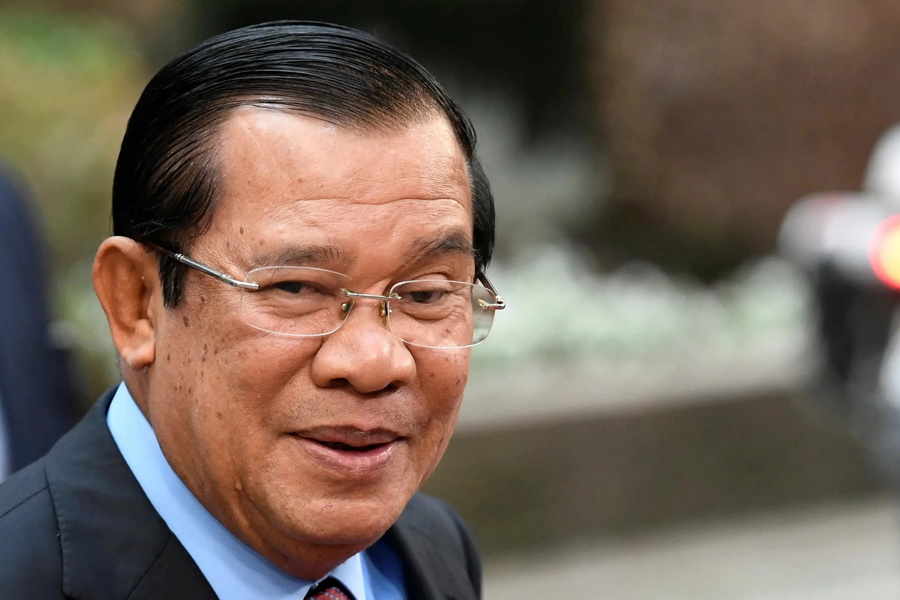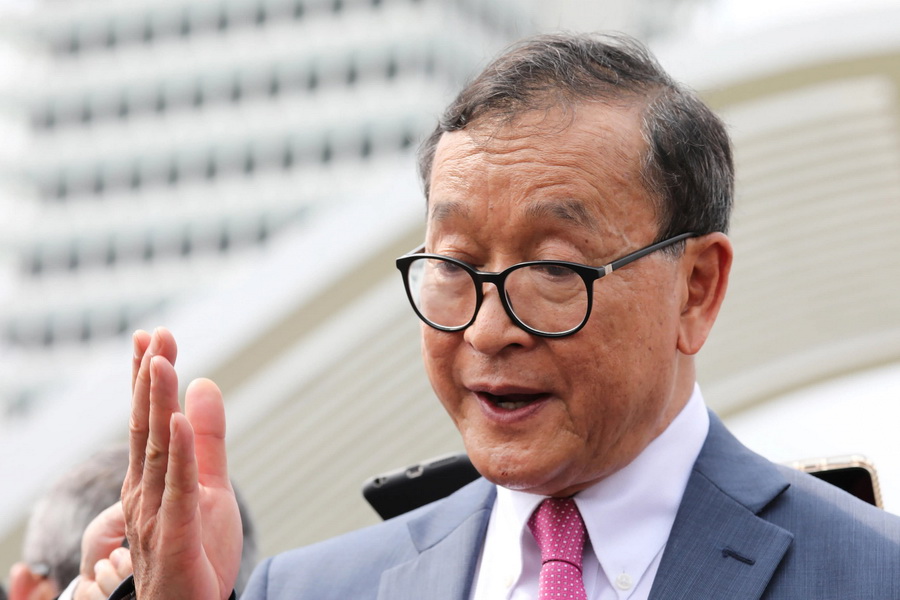Pressure from Brussels risks deepening Phnom Penh’s close engagement with China
Cambodian Prime Minister Hun Sen’s authoritarian government is coming under increasing pressure from the European Union to revitalize the country’s floundering democracy or face trade restrictions. But the EU should think again. Its threats are unlikely to work, and risk pushing Cambodia deeper into the arms of China.
The issue is urgent. Hun Sen’s government has less than a month to respond to an EU report concluding that Cambodia should lose the trade privileges it enjoys under the bloc’s Everything But Arms trade program because of a “deterioration” in the political situation since a review was launched in February. The EU will announce its final decision in February 2020.
The loss of European trade perks would be painful for Cambodia. In 2018, 45% of its exports went to the EU — mostly garments and apparel. If the EBA benefits are suspended, the World Bank has estimated the annual loss of export revenues at between $513 million and $654 million. Mass layoffs are also likely as factories respond to falling demand.
The EU’s objective is to force Cambodia to reverse a steep slide into authoritarianism following the arrest of Kem Sokha, president of the opposition Cambodia National Rescue Party, and the banning of his party in late 2017. The ban allowed Hun Sen’s Cambodian People’s Party, or CPP, to win all 125 seats in the Cambodian National Assembly in elections in July 2018.
The pressure from Brussels has had some effect. On November 10, the Cambodian government released Kem Sokha from house arrest after two years of detention on treason charges. A few days later, Hun Sen ordered the release on bail of more than 70 political activists, most detained in recent weeks to stymie a threat by Sam Rainsy, an exiled former CNRP president, to return to Cambodia on November 9 to lead a “People Power” uprising against the government. Rainsy has since returned to Paris and is still promising to return, despite facing imprisonment on a raft of political charges.
These moves raise the likelihood of a negotiated settlement — potentially involving the reinstatement of the CNRP as a legal entity — that would head off a withdrawal of EBA trade privileges. But the longer-term picture is fuzzier. Hun Sen has a long history of making temporary concessions in response to foreign pressure and later winding them back. Those freed from jail could easily be detained again. Kem Sokha’s release is also an attempt to exploit a long-standing rivalry between the two CNRP leaders in the hope of hampering the opposition.
Setting aside Hun Sen’s tactical adroitness, the tensions between Cambodia and the EU raise deeper questions about the wisdom and efficacy of using external pressure to compel democratic change. Cambodia has been subjected to outside forces more than most other Southeast Asian countries. During the Cold War, the nation was trampled by dueling superpowers. In 1991, the Paris Peace Agreements, intended to end the country’s long civil war, turned it into an international project of betterment: a subject for interventions of a different kind.
Since then, Cambodia’s politics has played out in intricate dialectic with a variety of external actors. The Western media’s prevailing view of Cambodia as a simple struggle between democrats and dictators conceals the complex ways in which outside forces have been conscripted into bitter domestic struggles since the fall of the Khmer Rouge regime in 1979.
Since entering opposition in 1995, Sam Rainsy has focused much of his energy on mobilizing international support for Cambodia’s democratization, while playing on traditional ethno-nationalist anxieties about Vietnamese domination at home.
This offers important context for his aborted return to the country on November 9. It was never likely to happen in the face of concerted government opposition. But while the plan failed to trigger a democratic uprising, it succeeded as an international publicity stunt on the eve of the EBA decision.
Meanwhile, one of Hun Sen’s long-term goals has been to court alternative outside forces that can provide the backing necessary to keep his party, and himself, in power. This has led Cambodia toward China, which has become the dominant economic presence in the country. Instead of trying to remake Cambodia in a liberal image, Beijing has offered substantial financial backing and investment within an avowed framework of national sovereignty and noninterference.
Over time, Chinese backing has slowly reduced the leverage of Western democracies. As a result, the pattern of Western pressure followed by political concessions from Phnom Penh has masked a steady political consolidation by the CPP. Seen in this light, the EU’s threat to withdraw trade preferences, threatening a large chunk of Cambodia’s export economy, is a measure of how far the ground has shifted.
While the past is no guarantee of the future, the last three decades of Cambodian history demonstrate the limits of the potential for outside actors to effect the complex process of democratic change. While external pressure can sometimes compel positive actions, it is unlikely to transform the mindset of those in power.
It also incurs a cost. Whatever the resolution to the standoff over Cambodia’s EBA privileges, the episode will harden the CPP’s resolve to reduce its reliance on Western governments in favor of outside powers such as China that prioritize transactional engagement over human rights or liberal norms of behavior.
Instead of proving the efficacy of outside pressure, the EBA affair may well end up demonstrating its limits.
Published by the Nikkei Asian Review, November 19, 2019





